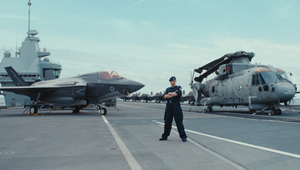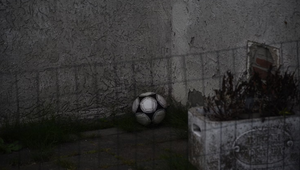
WCRS and The Royal Air Force Launch Social Sound Test to Boost Recruitment

Today, 13th January, the Royal Air Force is launching a new campaign to boost recruitment for intelligence roles working with foreign languages.
The RAF has found that not enough people are applying because they believe they can’t learn a foreign language. Yet even if people struggled with languages at school, they may definitely still have the ability to learn one. The RAF wants to unlock this ability and develop the skills of natural born linguists. One of the ways the RAF can discover this is through peoples’ ability to pick up lyrics to a song, or conversations in a noisy room.
To help find prospective candidates WCRS has developed ‘Sound Skills’, an online test designed to assess users’ selective auditory attention (selective hearing). The test lives on the RAF website and asks people to listen to five different scenarios (a song, a football commentator, a festival, a phone call and a conversation in a pub) and after each asks the player a question relating to what they heard. The scenarios, which use binaural sound to create an immersive 3D experience through a standard pair of headphones, have been carefully designed to evaluate whether people have the skills required to excel in the role and get increasingly difficult as the test goes on.
Creative on Facebook and YouTube will drive people to the experience, after which users are invited to read and apply for the role.
The campaign will run in January and February 2017.
You can check out the test by clicking here.
Ben Long, Digital Creative Director, WCRS: “This was a brilliant brief that in terms of interactivity felt like a real break from the norm. It’s amazing how the brain can process and select a specific sound source from a confusing environment and it was this line of thinking that felt like we were grappling with a completely fresh creative process. We were sitting there with our hands over our eyes and really listening, trying to shape a sound environment that had different levels of complexity. The visual side of the campaign became subsidiary to all of that.”
Steve Lane, Sound Designer, Grand Central Recording Studios: “The project called for sound that was ultimately difficult to hear, which is really the opposite of what we normally aim for in sound design. I applied different techniques to mark the points of information we wanted to be identified, and used binaural sound to stretch focus away from these elements. The use of binaural created a realistic soundscape and brought to life the surrounding environment to distract and test the viewer. Approaching the sound design was really quite challenging, as sound can be very subjective. We carried out lots of testing to gauge the right level, finding a sweet spot that would help identify those with the skills the RAF are looking for.”















